Buy 2-Day -Advanced Assessment Skills-Respond to the Patient’s Clues with Skill and Confidence – Dr. Paul Langlois Course at GBesy. We actively participate in Groupbuys and are committed to sharing knowledge with a wider audience. Rest assured, the quality of our courses matches that of the original sale page. If you prefer, you can also buy directly from the sale page at the full price (the SALEPAGE link is directly provided in the post).
2-Day -Advanced Assessment Skills-Respond to the Patient’s Clues with Skill and Confidence by Dr. Paul Langlois,
Salepage link: At HERE. Archive:
- Faculty:
- Dr. Paul Langlois
- Duration:
- Two Full Days
- Format:
- Audio and Video
- Copyright:
- Apr 20, 2020
Description
Maybe your instinct kicked in with a patient you cared for in the past. You knew something was ‘off’. But what was it? Have you always felt confident that you had done enough…
Have you ever been perplexed with symptom findings in your patient’s history or physical exam? If a laboratory test, 12-lead ECG, or arterial blood gas were ordered, would you be able to interpret the findings – without missing something important? Whether you have been in practice for decades or just a few years, picking up on the subtle clues from the patient can be a challenge to master. Without the skills to quickly identify concerns and initiate appropriate interventions, you could be putting your patient, and your license, at risk.
Watch nationally-recognized speaker, Dr. Paul Langlois, APN, PhD, CCRN, CCNS, CNRN, in this recording to gain powerful new clinical insights and critical thinking skills so you won’t need to feel uncertain or scared anymore. You will learn through exciting patient case studies, reinforced with helpful new clinical mnemonics. Finish this intense course with increased confidence in your ability to conduct differential symptom analysis, interpret the laboratory implications, skillfully read 12-lead ECGs, document your findings, and, ultimately, select the interventions to ensure the best outcomes for your patient. You will experience the dramatic changes in your own practice when you work your next shift!
Handouts
| Manual – 2-Day Advanced Assessment Skills (69.5 MB) | 309 Pages | Available after Purchase |
Outline
Psychosocial Assessment
- CALM acronym: How to set the person at ease during your assessment
- Three key elements in determining the psychosocial assessment
- Proven ways to assess stress in the patient
- Two ways to quickly identify suicidal ideation
- Is this an accident or abuse or neglect?
General Survey of the Patient: What You See is What You Get…Well Not Always
- Symptom analysis…use the COLDSPA acronym
- What the blood pressure and pulse tell you about the patient…even before the stethoscope
- Four proven ways to differentiate neuropathic and non-neuropathic pain
- Key steps when a patient says that they have a condition you have never heard of
- Are the patient’s medications causing the problem…check the Beers criteria
Look Into My Eyes
- Red-flags you must be aware of regarding the eyes
- How medications affect the eye exam
- Differentiating visual acuity and visual fields…impact of the cranial nerves
Respiratory System…Much More than Breath Sounds
- Three age-related changes in the lungs you must know
- The stethoscope is vital, but so are your hands
- How to differentiate asthma, emphysema, pneumonia, and pleural effusion
- Keys to indicate the patient needs a chest radiograph
- The ABCs of ABGs: Four proven ways to contrast respiratory vs. metabolic acidosis and alkalosis
- Four other laboratory tests to assess lung function
- Medications for pulmonary conditions
Cardiovascular System…Beyond the Heart
- Determine if that adventitious sound is during systole or diastole
- Murmurs, rubs, opening snaps…what do they all mean?
- What does the ECHO cardiogram tell you?
- Identify the location of the ischemia, injury, or infarction based on the 12-lead ECG
- Laboratory tests for heart conditions…Heart failure, myocardial infarction, pericarditis
- Pearls for a thorough peripheral vascular assessment…arteries, veins, and lymph nodes
- Must-know categories of medications that deteriorate the heart
Gastro-intestinal System…Beyond the Large and Small Intestine
- Don’t worry about this prevalent finding…it is age related
- GI laboratory tests that are vital for patient assessment
- Could this be cancer or a normal finding?
- Four most-ordered GI procedures and differential diagnosis
- The effect of medications on the GI tract
Genitourinary System
- Differentiate cystitis, UTI, and pyelonephritis…should medications be prescribed?
- ”There is blood in my urine”; what you need to do right now for your patient
- GU laboratory test and procedures; how to interpret the results
- How contrast dyes affect the kidney…watch out for these signs
Musculoskeletal System
- ”I have this back pain”; what you need to do now before the pain progresses
- Differentiating muscular pain and nerve damage
- Five time-honored tests for the musculoskeletal system
- Medications that facilitate fluidity in the MS system
Neurologic System
- Differentiating two- and three-reflex arcs
- Four pearls when conducting cranial nerve assessment
- Is this a motor or sensory problem?
- Two tests for meningitis which do not require cerebral spinal fluid
- Types of seizures and the latest medication options
- Four deadly infections of the neurologic system
- Does your patient need an MRI, Positron emission tomography, or CT scan?
- Neurologic monitoring: Intraventricular, intraparenchymal, brain oxygen tension
Assessment of the Elderly Patient
- Head to toe differences in the assessment of the elderly patient
- ”I can’t seem to remember…is this normal?” Cognitive alterations occurring as we age
- These laboratory parameters differ in the elderly
- The effect of medications on the elderly
Rapid Assessment of the Decompensating Patient
- AMPLE acronym: A must-know to quickly and accurately gather patient information
- ”I have pain”…the PQRST acronym is vital to help the patient
- Get these labs immediately for a crashing patient
Faculty

Dr. Paul Langlois, APN, Ph.D., CCRN, CCNS, CNRN Related seminars and products: 21
Dr. Paul Langlois, APN, Ph.D., CCRN, CCNS, CNRN, is a critical care clinical specialist in the Surgical, Medical, Neurologic, Burn, CCU and Trauma ICUs of Cook County Hospital, Chicago. Drawing on over 30 years of experience assessing and managing patients with life-threatening diseases, Dr. Langlois provides advanced-level training to nurses, physician assistants, nurse practitioners and physicians. Dr. Langlois received his Doctor of Nursing degree from Rush University in Chicago, Illinois.
Dr. Langlois is committed to providing the highest quality of care to patients through advanced education. His presentations are evidence-based, timely and provide participants with case studies to facilitate critical thinking. As a bedside clinical nurse specialist, he has developed several institution-wide protocols for the multidisciplinary assessment and management of the cardiac, neurologic, septic, and multi-system organ failure patient.
His presentations are enthusiastically delivered and offer practical tips that help make the most challenging concepts easy to understand. Linking knowledge to clinical practice is the goal of every educational program.
Speaker Disclosures:
Financial: Paul Langlois has an employment relationship with Cook County Hospital. He receives a speaking honorarium from PESI, Inc.
Non-financial: Paul Langlois has no relevant non-financial relationship to disclose.
Buy the 2-Day -Advanced Assessment Skills-Respond to the Patient’s Clues with Skill and Confidence – Dr. Paul Langlois course at the best price at GBesy.. After your purchase, you will get access to the downloads page. You can download all the files associated in your order at here and we will also send a download notification email via your mail.
Unlock your full potential with 2-Day -Advanced Assessment Skills-Respond to the Patient’s Clues with Skill and Confidence – Dr. Paul Langlois courses. our courses are designed to help you excel.
Why wait? Take the first step towards greatness by purchasing 2-Day -Advanced Assessment Skills-Respond to the Patient’s Clues with Skill and Confidence – Dr. Paul Langlois courses today. We offer a seamless and secure purchasing experience, ensuring your peace of mind. With our trusted payment gateways, Stripe and PayPal, you can confidently complete your transaction knowing that your financial information is protected.
Stripe, known for its robust security measures, provides a safe and reliable payment process. With its encrypted technology, your sensitive data remains confidential throughout the transaction. Rest assured that your purchase is protected.
PayPal, a globally recognized payment platform, offers an additional layer of security. With its buyer protection program, you can feel confident in your purchase. PayPal ensures that your financial details are safeguarded, allowing you to focus on your learning journey.
Is it secure? to Use of?
- Your identity is completely confidential. We do not share your information with anyone. So it is absolutely safe to buy the 2-Day -Advanced Assessment Skills-Respond to the Patient’s Clues with Skill and Confidence – Dr. Paul Langlois course.
- 100% Safe Checkout Privateness coverage
- Communication and encryption of sensitive knowledge
- All card numbers are encrypted using AES at relaxation-256 and transmitting card numbers runs in a separate internet hosting atmosphere, and doesn’t share or save any data.
How can this course be delivered?
- After your successful payment this “2-Day -Advanced Assessment Skills-Respond to the Patient’s Clues with Skill and Confidence – Dr. Paul Langlois course”, Most of the products will come to you immediately. But for some products were posted for offer. Please wait for our response, it might take a few hours due to the time zone difference.
- If this happens, please wait. The technical department will process the link shortly after. You will receive notifications directly by e-mail. We appreciate your wait.
What Shipping Methods Are Available?
- You will receive a download link in the invoice or YOUR ACCOUNT.
- The course link always exists. use your account to login and download the 2-Day -Advanced Assessment Skills-Respond to the Patient’s Clues with Skill and Confidence – Dr. Paul Langlois course whenever you need.
- You only need to visit a single link, and you can get all the 2-Day -Advanced Assessment Skills-Respond to the Patient’s Clues with Skill and Confidence – Dr. Paul Langlois course content at once.
- You can do your learning online. You can be downloaded for better results and can study anywhere on any device. Make sure your system does not sleep during the download.
How Do I Track Order?
- We always notice the status of your order immediately after your payment. After 7 days if there is no download link, the system will automatically complete your money.
- We love to hear from you. Please don’t hesitate to email us with any comments, questions and suggestions.
![GBesy [GB] GBesy [GB]](https://www.gbesy.com/wp-content/uploads/2023/05/gbesy-Logo-full-100.png)
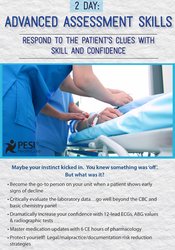
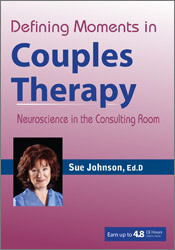

 Purchase this course you will earn
Purchase this course you will earn 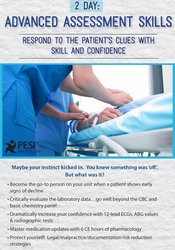
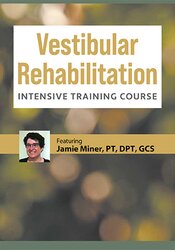
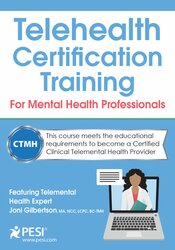
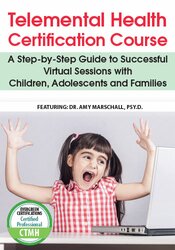

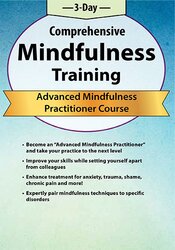
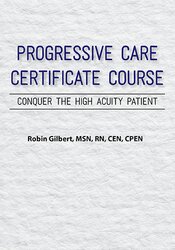
Reviews
There are no reviews yet.